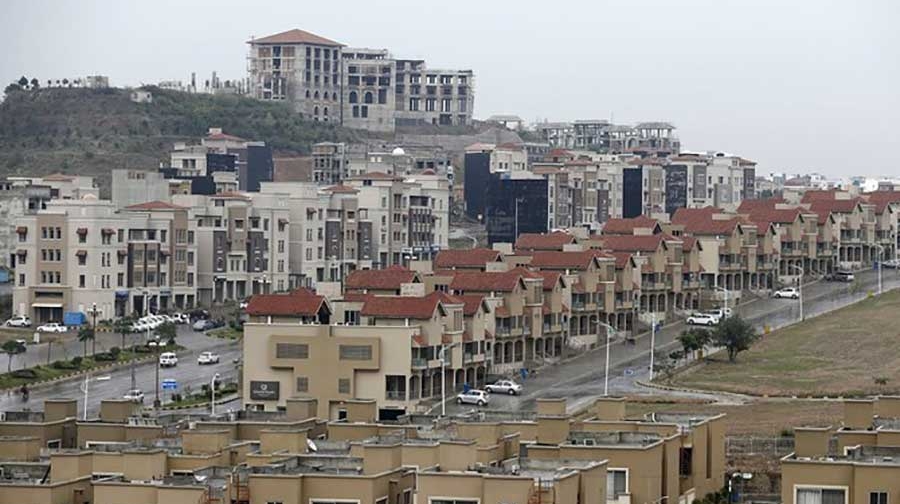Table of Contents
Real estate is often considered an important investment option because it can provide a number of benefits, including:
➥ Potential for Appreciation: The value of real estate can increase over time, which can result in a profit when the property is sold.
➥ Passive Income: Income-producing properties, such as rental properties, can provide a steady stream of passive income.
➥ Diversification: Including real estate in an investment portfolio can help diversify the portfolio and reduce risk.
➥ Tangible Asset: Real estate is a tangible asset that can provide a sense of security and stability.
➥ Leverage: It is often possible to use leverage, such as a mortgage, to purchase real estate, which allows the investor to control a property that is worth more than the amount of money invested.
Overall, real estate can be a valuable addition to an investment portfolio for those who are willing to do the research, take on some risk, and potentially commit to a long-term investment. It’s important to note that investing in real estate also carries some risks, such as the possibility of market downturns, property damage or natural disasters, and the challenges of being a landlord.
Additionally, real estate investing requires a significant amount of time and effort, as it involves researching properties, negotiating deals, and managing the property (if it is being rented out). Investors should carefully consider their financial goals, risk tolerance, and available resources before deciding whether real estate is a suitable investment option for them.
Pakistan has a growing economy and a rapidly expanding real estate market, making it an interesting option for investors. The country’s real estate sector has seen significant growth in recent years, with increasing demand for both residential and commercial properties in major cities such as Karachi, Lahore, and Islamabad. In addition, the government has implemented a number of initiatives and reforms to encourage investment in the sector, including the establishment of a Real Estate Investment Trust (REIT) and the development of new housing projects. As a result, there are a number of opportunities for investors looking to tap into the potential of the Pakistani real estate market.
Overview of the current state of the Pakistani real estate market
In 2020, the sector saw a 6% increase in value, with demand for both residential and commercial properties remaining strong in major cities such as Karachi, Lahore, and Islamabad. The market is also being driven by a number of factors, including a growing population, a boom in construction and infrastructure development, and low interest rates on mortgages.
One trend that has emerged in recent years is the increasing popularity of “smart cities,” or planned communities that are designed to be sustainable, livable, and technologically advanced. These projects, which are being developed in various parts of the country, are attracting attention from both local and foreign investors.
Overall, the current state of the Pakistani real estate market appears to be positive, with opportunities for investment in a variety of property types and locations. However, as with any investment, it is important for potential investors to carefully research and evaluate the potential risks and returns before making a decision.


Brief description of any notable trends or changes in the market
Here are a few notable trends and changes that have been observed in the Pakistani real estate market in recent years:
➥ Increased demand for “smart cities”: In recent years, there has been a trend towards the development of “smart cities,” or planned communities that are designed to be sustainable, livable, and technologically advanced. These projects, which are being developed in various parts of the country, have attracted attention from both local and foreign investors.
➥ Boom in construction and infrastructure development: The real estate market in Pakistan has been boosted by a number of large-scale construction and infrastructure projects, including the development of new housing projects and the expansion of transportation networks. This has created opportunities for investment in a variety of property types and locations.
➥ Growth of the housing finance sector: The housing finance sector in Pakistan has been expanding in recent years, with the establishment of new mortgage companies and the introduction of innovative financing products. This has made it easier for individuals and families to access home ownership, which has in turn fueled demand for residential properties.
➥ Increased foreign investment: The Pakistani real estate market has also seen an increase in foreign investment in recent years, with investors from countries such as the United Arab Emirates and China showing interest in the market.
➥ Changes in regulations and policies: The Pakistani government has implemented a number of reforms and initiatives in recent years to encourage investment in the real estate sector, including the establishment of a Real Estate Investment Trust (REIT) and the introduction of new policies to streamline the process of buying and selling property. These changes have had a positive impact on the market and have made it easier for investors to enter the market.
Opportunities for investment in the Pakistani real estate market
There are a number of areas and types of properties in Pakistan that are particularly attractive for investment. Here are a few examples:
➥ Commercial properties in growing areas: As the economy grows, there is increasing demand for commercial properties in areas that are experiencing growth and development. Investment in commercial properties, such as office buildings, shopping centers, and warehouses, can be a good way to tap into this demand.
➥ Smart city projects: As mentioned earlier, the development of “smart cities” or planned communities that are designed to be sustainable, livable, and technologically advanced has been a notable trend in the Pakistani real estate market. These projects, which are being developed in various parts of the country, have attracted attention from both local and foreign investors.
➥ Agricultural land: Pakistan has a large agricultural sector, and investment in agricultural land can be a good way to tap into this industry. Agricultural land is often less expensive than other types of real estate, and it can provide a steady stream of income through the production of crops or livestock.
➥ Industrial properties: Pakistan’s manufacturing sector is growing, and industrial properties, such as factories and warehouses, can be a good investment opportunity in areas that are experiencing industrial development.
It’s worth noting that the attractiveness of a particular area or property type will depend on a number of factors, including the location, condition, and potential return on investment. Investors should carefully research and evaluate these factors before making a decision.
Specific factors that make these opportunities particularly appealing
➥ Increasing demand: The demand for real estate in Pakistan, particularly in major cities such as Karachi, Lahore, and Islamabad, is strong and continues to grow. This can make it easier for investors to find tenants or buyers for their properties, and it can also help to drive up property values over time.
➥ Favorable economic conditions: Pakistan’s economy has been growing in recent years, and this has had a positive impact on the real estate market. Low interest rates, a growing population, and increased construction and infrastructure development have all contributed to the growth of the market.
➥ Government initiatives: The Pakistani government has implemented a number of initiatives and reforms to encourage investment in the real estate sector, including the establishment of a Real Estate Investment Trust (REIT) and the development of new housing projects. These initiatives have made it easier for investors to enter the market and have had a positive impact on the market overall.
➥ Growing foreign investment: The Pakistani real estate market has also seen an increase in foreign investment in recent years, with investors from countries such as the United Arab Emirates and China showing interest in the market. This can help to increase the demand for properties and drive-up values.
➥ Opportunities for long-term growth: With a growing population and economy, there is potential for long-term growth in the Pakistani real estate market. This can make it an attractive option for investors looking to make a long-term commitment.
It’s important to note that real estate investing carries some risks and uncertainties, and it is important for investors to carefully research and evaluate the potential risks and returns before making a decision.
Suggestions for how to assess the location, condition, and potential return on investment of property
➥ Condition: The condition of a property can have a significant impact on its value and the costs of owning and maintaining it. Consider factors such as the age and condition of the structure, as well as the condition of any appliances, fixtures, and finishes.
➥ Potential return on investment: Calculating the potential return on investment (ROI) of a property can help you determine whether it is a good investment. To calculate the ROI, divide the expected annual income from the property (such as rent or sales) by the total cost of the property (including the purchase price, closing costs, and any necessary repairs or renovations).
➥ Market trends: It can also be helpful to research market trends in the area, including the demand for properties like the one you are considering, as well as price trends and any other relevant factors that may impact the value of the property.
➥ Professional evaluations: It can be helpful to have a professional evaluation of the property, such as a home inspection or an appraisal. These evaluations can provide a more detailed assessment of the property’s condition and potential value.
By considering these factors, you can get a better sense of the potential risks and returns of a real estate investment and make an informed decision.
Conclusion
The Pakistani real estate market has a lot to offer investors, with a growing economy, increasing demand for housing and commercial properties, and a range of opportunities for investment. From residential properties in major cities to commercial properties in growing areas, there are a variety of options for investors to consider.
In addition, the Pakistani government has implemented a number of initiatives and reforms to encourage investment in the sector, including the establishment of a Real Estate Investment Trust (REIT) and the development of new housing projects. These initiatives have made it easier for investors to enter the market and have had a positive impact on the market overall.
Overall, the Pakistani real estate market is an attractive option for investors who are looking for opportunities for long-term growth and are willing to do the research and take on some risk. It’s worth noting, however, that real estate investing carries some risks and uncertainties, and it is important for investors to carefully research and evaluate the potential risks and returns before making a decision.
If you are considering investing in real estate in Pakistan, it can be helpful to seek the advice of a financial professional, such as a real estate agent or financial advisor, who can provide guidance and help you make an informed decision.





